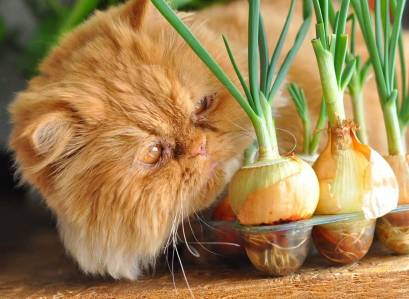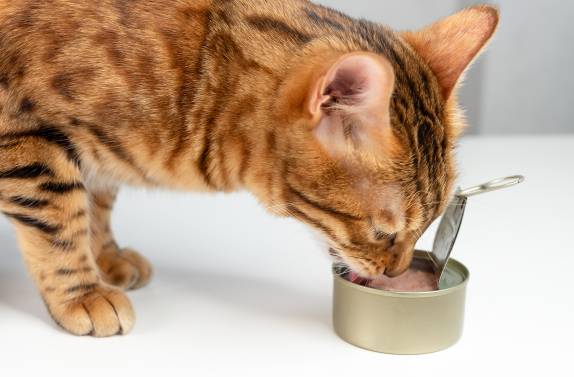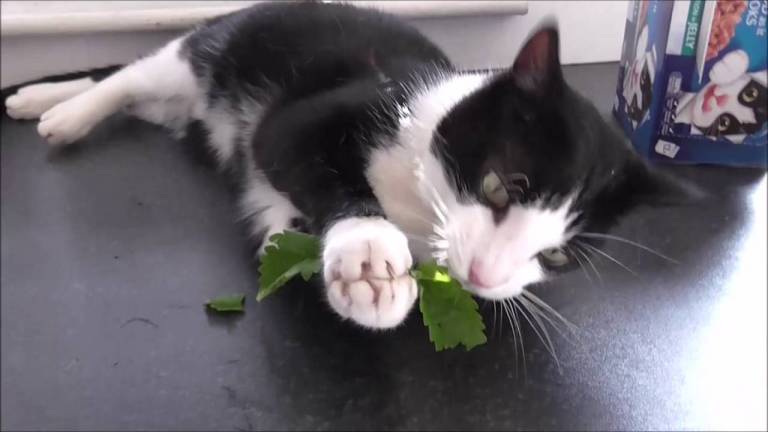Have you ever bought a toy for your cat that’s filled with catnip? How did your kitty react to the toy? Did she start rubbing on it or start rolling around on the floor in ecstasy?
Connect with a verified veterinarian in minutes. Licensed vets are available 24/7 to answer your questions. No need to worry about your furry family member.
It’s long been known that catnip affects cats in some pretty strange ways. By all appearances, it looks like cats become high from catnip when they smell it! But what happens if a cat eats catnip?
Has your cat eaten some catnip? Are you worried the catnip will make your cat sick? If so, then you’ve come to the right place.
In this article, we’ll take a look at catnip and whether or not it can make your cat sick. Let’s get started!
What Is Catnip?
Catnip is an herb, which is part of the mint family. It originally came from Asia and Europe; however, it’s very easy to grow it in the US. You may also sometimes hear catnip referred to as catmint, catwort, or field balm.
The herb has been used for its medicinal properties for centuries. It’s been used as a tea to treat anxiety, nervousness, indigestion, and insomnia. The herb has also been used as a diuretic to increase urination and decrease water retention. Catnip has also been used for coughs, hives, fevers, treatment of viral infections, and even to relieve arthritis pain.
The most commonly known use of catnip, however, has been as a stuffing in cat toys. The leaves are dried and then used as part of the stuffing in toys for cats. The reason it’s used in cat toys is that cats seem to love this herb.
How Does Catnip Work on Cats
Cats have an extremely developed sense of smell, which is activated by catnip. The herb has a very strong smell, which carries the substance nepetalactone to the cat’s brain. Nepetalactone is an essential oil found in the leaves of the catnip plant.
The nepetalactone is said to mimic feline sex hormones. This means the cats really enjoy the herb. It can cause cats to become very affectionate, relax, happy, playful, or even sometimes aggressive. Some vets even recommend catnip to treat cats who have separation anxiety.
What’s interesting is that catnip works on all felines—from large felines (such as lions, tigers, and more) to our domesticated house cats.

Review symptoms, medications & behavior to keep your pets healthy with a Vet Online in just minutes.
Ask a Vet Live NowIs Catnip Toxic If Eaten?
The good news is that catnip is not a toxic substance for cats. However, if a cat eats a lot of the herb, then it’s possible the cat may develop catnip poisoning. Thankfully this is not a life-threatening reaction; however, it can cause digestive issues such as nausea, vomiting, and diarrhea.
The real concern here is the vomiting and diarrhea. If these last longer than 24 hours, then it’s time to call the vet. Excessive and continued vomiting and diarrhea can cause your cat to become dehydrated.
The digestive issues in most cats should pass within a few hours. After this, your cat should be feeling much better and be back to her cute and furry self!
Connect with a verified veterinarian in minutes. Licensed vets are available 24/7 to answer your questions. No need to worry about your furry family member.

Julie
Julie is a graduate of the University of North Carolina, Wilmington, where she studied Animal science. Though contrary to the opinion of her parents she was meant to study pharmacy, but she was in love with animals especially cats. Julie currently works in an animal research institute (NGO) in California and loves spending quality time with her little cat. She has the passion for making research about animals, how they survive, their way of life among others and publishes it. Julie is also happily married with two kids.
Review symptoms, medications & behavior to keep your pets healthy with a Vet Online in just minutes.
Ask a Vet Live Now



